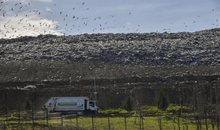
 Flash News
Flash News
The French footballer is declared the "player of the season" in the Champions League
Flames engulf the Darëzeza forest massif in Fier
Serious accident in Vlora, vehicle collides with two young people, one of them dies
Durrës Border Police find two tourists on a speedboat, one dead, the other in serious condition
Car hits motorbike, 25-year-old dies in Bilisht
Threat or protection? Rama's stances towards SPAK spark contradictions
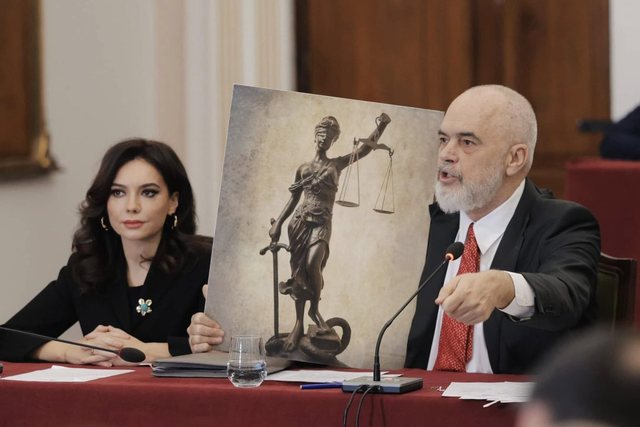
The 'public protection' that Rama offers to SPAK is seen as declarative and contradictory by political science professors, while the large governing majority is seen as the only threat to the independence and work of justice.
Celebrating the victory in the May 11 elections that gave him his fourth mandate in office, Prime Minister Edi Rama singled out the protection of justice as one of the main goals of his government.
"The independence of justice and its protection at all costs, even with your body, is the only way and we will remain steadfast on the only way," Rama declared on May 25 in front of his party's MPs.
This was a turn in Rama's rhetoric before the elections, which culminated in a verbal attack on the Special Prosecution Office after the arrest of Mayor Erion Veliaj, where the work of this structure was compared to the infamous Sigurimi of communism.
Political experts consider Rama's public discourse on the defense of SPAK to be insincere and contradictory, while it is not clear from whom he will defend it and what undermines the independence of justice besides the government and the majority, which has already secured almost a qualified majority of 3/5 in Parliament.
"The idea is that there is a contradiction, since the relationship between SPAK and the majority lies in the fact that SPAK is threatened precisely by the majority, because its main work is with the majority," says Blendi Ceka, a lecturer in Political Science at the University of Tirana.
According to Ceka, with 83 parliamentary mandates, the majority led by Rama could change the legal framework to make this structure's work more difficult and thus pose a direct threat.
Ermal Hasimja, a political science professor, also sees Rama's statements about SPAK as "defense in his own terms" while considering the head of government as the greatest threat to the independence of justice. A public alliance between the prime minister and the opposition leader would, according to him, be an even greater threat to the new justice institutions.
“It is difficult for the SP to attack and neutralize SPAK without the public support of the DP, therefore the danger to SPAK does not come only from Rama, but from his possible collaboration with Berisha,” Hasimja told BIRN.
Hasimja brings to attention that this type of cooperation that guarantees their political monopoly has occurred previously with the amendment of the Electoral Code or the Criminal Amnesty.
For him, Rama's statements about defending SPAK and justice aim to create a contrast, purely declarative and political, between him and Berisha as an attacker of SPAK.
"But it is clear from everything he has said and done in the past that this contrast is merely declarative. Essentially, Rama and Berisha seem to agree on getting rid of SPAK," suggests Hasimja.
Specifically, he sees the risk in possible legal changes affecting the justice reform laws and the work of SPAK, which, according to him, makes it more difficult and perhaps impossible for the judiciary to crack down on high-ranking officials.
"There is no need to dissolve SPAK," emphasizes Hasimja, adding that "it is enough to change the legal basis or in any other way disable SPAK's ability to strike at those in power."
SPAK, as the 'basis' of the integration process
The Special Prosecution Office is one of the new and most discussed institutions created as a result of international pressure for a reform of the justice system in Albania - in order to enable the fight against high-level corruption and organized crime.
The investigations have so far led to two opposition leaders being charged with corruption, former prime ministers Sali Berisha and Ilir Meta, while senior officials of the ruling Socialist Party are also under indictment, including former Tirana mayor Erion Veliaj, former deputy prime minister Arben Ahmetaj, and former ministers of Health and Environment Ilir Beqaj and Lefter Koka.
The most sensational corruption cases are related precisely to Rama's governance, but according to professor Blendi Ceka, the government also needs his success as a passport in the negotiation process with the EU.
“It is an existential issue for the government to make this project work,” Çeka suggested.
"The first group of chapters of the negotiations is related precisely to the reform of the judiciary and it is this group of chapters that will be closed last, as a form of monitoring that this process is irreversible," he added, while emphasizing that if the EU turns off the light of integration, then the government is the main threat to SPAK.
Political scientist Ermal Hasimja is more pessimistic in his prediction about the threat to SPAK's independence from politics.
While the scenarios are currently unclear, Hasimja estimates that the end of the mandate of the current head of SPAK, Altin Dumani, will be an indicator of the shape that this institution will take in the future.
"The big challenge for SPAK will be the end of Duman's mandate. There we will really see how Rama and Berisha's political will to deal with justice will take shape," he concluded. /BIRN
Latest news


"Russia could attack NATO in the next 4 years," warns German defense chief
2025-06-01 21:34:42
Kuçana: Opposition candidates have been threatened by "Rama's gangs in Shkozet"
2025-06-01 21:11:15
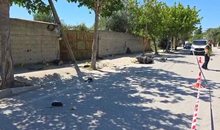

15-year-old injured in shooting at Ali Demi's pizzeria, details from police
2025-06-01 19:51:19
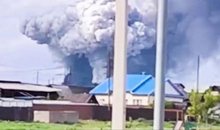
Russia accuses Ukraine of 'terrorist attack' on air bases
2025-06-01 18:57:24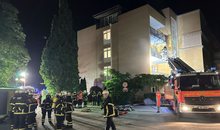
A hospital in Hamburg, Germany, catches fire, killing three patients
2025-06-01 18:32:28
Nesho: Rama's autocratic regime has not allowed free elections to take place
2025-06-01 18:10:23
Moroccan immigrant's suicide, activist: There are inhumane conditions in Gjadra
2025-06-01 17:49:32
World Bank Report, PL: Confirms that the majority of Albanians live in poverty
2025-06-01 17:23:56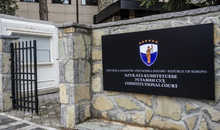

31 dead after Israeli attack near Gaza aid center
2025-06-01 16:40:30
At least 150 dead in Nigeria floods
2025-06-01 16:14:26
Flames engulf the Darëzeza forest massif in Fier
2025-06-01 15:56:41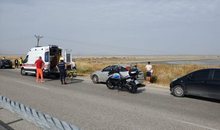
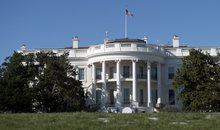
SHBA-ja i dërgon Iranit një propozim për marrëveshje bërthamore
2025-06-01 14:54:11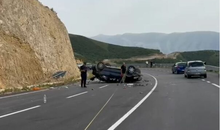
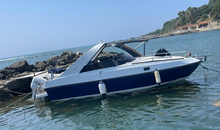
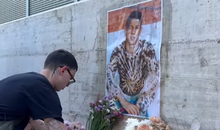
Moroccan immigrant commits suicide, activists protest in front of Gjadri camp
2025-06-01 13:48:17
PSG victory celebrations turn into tragedy, two dead, over 500 arrested
2025-06-01 13:26:33

Kosovo-Albania arms trafficking, Tirana Court leaves 8 arrested in prison
2025-06-01 12:41:11
Foreign worker dies at work, engineer of construction firm arrested in Tirana
2025-06-01 12:20:27
Car hits motorbike, 25-year-old dies in Bilisht
2025-06-01 11:56:56

Why doesn't the Vatican recognize the state of Kosovo?
2025-06-01 11:22:07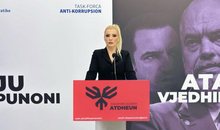

22-year-old arrested in Durrës, cocaine doses found hidden in his car
2025-06-01 10:40:20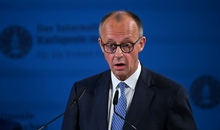
Merz to meet Trump in Washington on June 5
2025-06-01 10:18:13
Today, June 1st, is World Children's Day.
2025-06-01 10:01:13
Foreign exchange, the rate at which foreign currencies are sold and bought
2025-06-01 09:47:21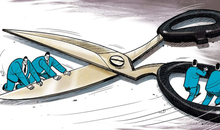
After the elections, the "fiscal peace" ends, the "war" begins
2025-06-01 09:24:30
PSG defeats Inter, grabs Champions League trophy
2025-06-01 09:08:08

Horoscope, what do the stars have in store for you today?
2025-06-01 08:40:10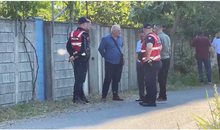
Serious in Tale, Lezha! 57-year-old man executed in the yard of his apartment
2025-06-01 08:25:55
Temperatures up to 31 degrees Celsius, weather forecast
2025-06-01 08:15:33
Morning Post/ In 2 lines: What mattered yesterday in Albania
2025-06-01 08:01:33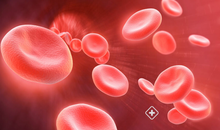
Anemia increases in the population
2025-05-31 22:18:38
Elections, Noka: A farce took place in Albania on May 11
2025-05-31 21:44:55


Jola Hysaj after the result in Durrës: The vote may have been alienated
2025-05-31 20:37:16

He was shot by his compatriot in Podgorica, the young 23-year-old Albanian dies
2025-05-31 19:58:13

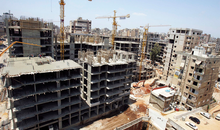
Ndërtime pa siguri? Humb jetën punëtori boshnjak në Tiranë
2025-05-31 18:59:42
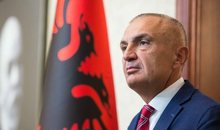
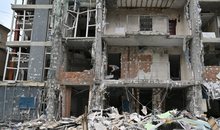
Russian attacks kill at least seven people in Ukraine
2025-05-31 17:35:43
Study: Half of the world experienced one more month of summer in 2024
2025-05-31 17:10:40
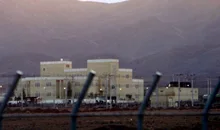



Tragedy in Germany, small plane crashes into a residential complex, two dead
2025-05-31 15:24:43


Wanted by German authorities, 22-year-old arrested at Morina border crossing
2025-05-31 14:39:44

Threat or protection? Rama's stances towards SPAK spark contradictions
2025-05-31 13:54:59

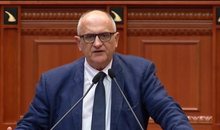
The poisoning of children in Gramsh, proof of the destruction of state control!
2025-05-31 12:59:40

Car full of contraband cigarette cartons, 48-year-old arrested in Kapshtica
2025-05-31 12:30:43


All the people (patronage) police
2025-05-31 11:59:12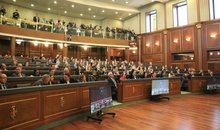
Dështon edhe seanca e 24-t, nuk ka konstituim të Kuvendit të Kosovës
2025-05-31 11:39:38

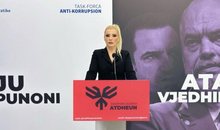

High flow of travelers at the Morina border crossing during the weekend
2025-05-31 10:20:31
Berisha will participate in the EPP Political Assembly in Brussels on June 3-4
2025-05-31 09:58:13

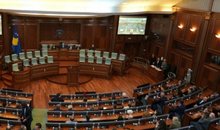
Today is the 24th attempt to constitute the Assembly in Kosovo
2025-05-31 08:58:30
Horoscope, discover the star forecast for your sign
2025-05-31 08:39:28
Weather forecast, how temperatures will vary throughout the day
2025-05-31 08:19:07
Morning Post/ In 2 lines: What mattered yesterday in Albania
2025-05-31 08:01:14
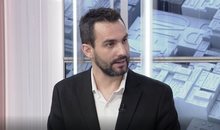


Bomb alert in a hotel in Tirana, what the police discovered
2025-05-30 22:05:17
The myth of 'eight hours of sleep' is debunked, here's what you need to consider
2025-05-30 22:01:55
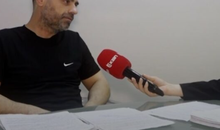
For 7 million Lek maintenance pension, the bailiff seizes his house
2025-05-30 21:42:00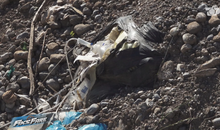



Video/ Bomb alarm in the parking lot of a hotel in Tirana, the police react
2025-05-30 20:59:35
Shots fired in Durres, one injured
2025-05-30 20:50:12
Bomb alert in the parking lot of a hotel in Tirana!
2025-05-30 20:25:46
